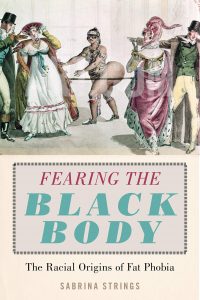In January 2021, Professor John Skrentny’s research on immigration policies for STEM PhDs appeared in Science magazine, while Assistant Professor Neil Gong published an article in The Atlantic outlining a range of interventions for right-wing extremism. Early in February, Assistant Teaching Professor Michel Estefan contributed an article to Inside Higher Ed on how to build supportive classrooms that generate equity, particularly in our current remote environment. In May, Neil Gong wrote about homelessness in California for theWashington Post. For more on these and other faculty publications, please see faculty members’ CVs and personal websites.
Category Archives: Publications
Faculty Publish in Science Magazine; Write for Public Audiences in The Atlantic, Inside Higher Ed, and Washington Post
Filed under Uncategorized
Bennetta Jules-Rosette’s New Book, African Art Reframed
 Bennetta Jules-Rosette, Distinguished Professor and Director of the African and African-American Studies Research Center, has recently published her new book African Art Reframed: Reflections and Dialogues on Museum Culture. Along with J.R. Osborn, she explores the reframing of African art through case studies of museums and galleries in the United States, Europe, and Africa. Drawing on extensive conversations with curators, collectors, and artists, African Art Reframed is an essential guide to building new exchanges and connections in the dynamic worlds of African and global art.
Bennetta Jules-Rosette, Distinguished Professor and Director of the African and African-American Studies Research Center, has recently published her new book African Art Reframed: Reflections and Dialogues on Museum Culture. Along with J.R. Osborn, she explores the reframing of African art through case studies of museums and galleries in the United States, Europe, and Africa. Drawing on extensive conversations with curators, collectors, and artists, African Art Reframed is an essential guide to building new exchanges and connections in the dynamic worlds of African and global art.
For more information, click here.
Filed under Uncategorized
Sabrina Strings (PhD 2012) writes New York Times op-ed
Sabrina Strings (UCSD PhD 2012 and Associate Professor at UC Irvine) is the author of an op-ed published in the May 25, 2020 New York Times. Drawing on her 2019 book, Fearing the Black Body: The Racial Origins of Fat Phobia, Sabrina questions the scientific, media, and political arguments connecting African Americans, obesity, and morbidity due to Covid-19.
The article is available here: https://www.nytimes.com/2020/05/25/opinion/coronavirus-race-obesity.html?action=click&module=Opinion&pgtype=Homepage
Filed under Uncategorized
Neil Gong, new Assistant Professor in 2021, writes op ed about sheltering homeless people during pandemic
Neil Gong will begin teaching as an Assistant Professor in the Department of Sociology in Fall 2021. He currently is a postdoctoral fellow at the University of Michigan.
In late April, Gong published an op-ed in CalMatters on the continually evolving CA plan to place homeless people in hotels. Please follow this link to read his proposal.
Filed under Uncategorized
PhD alum publishes in Nature: Social media hype surrounding hydroxychloroquine
In an editorial published in the journal Nature, alumna Joan Donovan (PhD 2015, Sociology and Science Studies) shows how misinformation about hydroxychloroquine was spread on social media, and she argues why media companies must flatten the curve of unsubstantiated science.
Donovan is the research director of the Shorenstein Center on Media, Politics and Public Policy at the Harvard Kennedy School in Cambridge, Massachusetts. Her article can be found at https://www.nature.com/articles/d41586-020-01107-z
Filed under Uncategorized
Extraordinary Contributor, Prof. Blair-Loy
In a 2019 empirical analysis of the multi-disciplinary work-family literature, Prof. Mary Blair-Loy was named a “Top Ten Extraordinary Contributor” in the “Landmark Contributions” category and a “Top 50 Contributor” in the overall contributions category. View Prof. Blair-Loy’s study here: https://www.tandfonline.com/doi/full/10.1080/13668803.2019.1596881.
Photo by Erik Jepsen
Filed under Uncategorized
PhD Alumna Sabrina Strings’ Fearing the Black Body: The Racial Origins of Fat Phobia by
Fearing the Black Body: The Racial Origins of Fat Phobia by our PhD alumna Sabrina Strings was just released!
It explores how fat phobia in the West finds its roots not in health concerns, but in the triangle slave trade and Protestantism.
How the female body has been racialized for over two hundred years.
There is an obesity epidemic in this country and poor black women are particularly stigmatized as “diseased” and a burden on the public health care system. This is only the most recent incarnation of the fear of fat black women, which Sabrina Strings shows took root more than two hundred years ago.
Strings weaves together an eye-opening historical narrative ranging from the Renaissance to the current moment, analyzing important works of art, newspaper and magazine articles, and scientific literature and medical journals—where fat bodies were once praised—showing that fat phobia, as it relates to black women, did not originate with medical findings, but with the Enlightenment era belief that fatness was evidence of “savagery” and racial inferiority.
The author argues that the contemporary ideal of slenderness is, at its very core, racialized and racist. Indeed, it was not until the early twentieth century, when racialized attitudes against fatness were already entrenched in the culture, that the medical establishment began its crusade against obesity.
An important and original work, Fearing the Black Body argues convincingly that fat phobia isn’t about health at all, but rather a means of using the body to validate race, class, and gender prejudice.
The book has been featured on three “must read” lists:
Ms. Magazine’s “2019 Reads for the Rest of Us”
Bitch Media’s “15 Nonfiction Books Feminists Should read this Spring”
#ColorlinesReads: Get Some Perspective With These 5 Books


Filed under Uncategorized
Isaac Martin’s Article on the Republican Tax Strategy Published in the New York Times
Isaac Martin, professor and department chair at sociology, has written an op-ed that was published in the New York Times. The article, titled “How Republicans Learned to Sell Tax Cuts for the Rich,” discusses the Republican tax strategy, rooted in the American populist tradition, which was first used to help the rich instead of the poor.
In the article, Isaac Martin argues that opponents of the current tax bill should reclaim their own populist roots. He writes:
It will not be hard. The tax bill pays for corporate tax cuts by increasing individual income taxes on poor and middle-class Americans in the long run. That tax increase will make people hopping mad. Another wave of economic populism is coming, and people who favor progressive taxation should not retreat to the seminar room.
Click here for the full article.
Filed under Uncategorized
Gershon Shafir Writes in the Washington Post About New Book
Gershon Shafir of the UCSD Sociology department wrote in the Washington Post’s Monkey Cage blog. In the article titled “Israel’s ‘temporary’ occupation has lasted 50 years. A new book explains why,” Gershon discusses the subject of his new book, “A Half Century of Occupation: Israel, Palestine and the World’s Most Intractable Conflict.” He writes:
In my new book, I describe how the “Shamgar Doctrine” — which I name after Meir Shamgar, the military’s general advocate during the 1967 war and the president of the Israeli Supreme Court in the 1980s — justifies and legalizes this apparent contradiction.
Filed under Uncategorized
Amy Binder’s Article Published in The Washington Post
The Washington Post has published an article written by UCSD professor of sociology Amy Binder. Her article, titled “There’s a well-funded campus industry behind the Ann Coulter incident,” discusses how some conservative campus organizations, often the most well-funded, thrive on confrontation and how there’s a lot of organization behind these types if events. In the article, Amy Binder writes:
Although Coulter and her sponsors — the Berkeley chapter of the College Republicans, local donors and a national organization called Young America’s Foundation — complained about the unfairness of the situation, they actually won by gaining attention from the fallout.
Filed under Uncategorized

